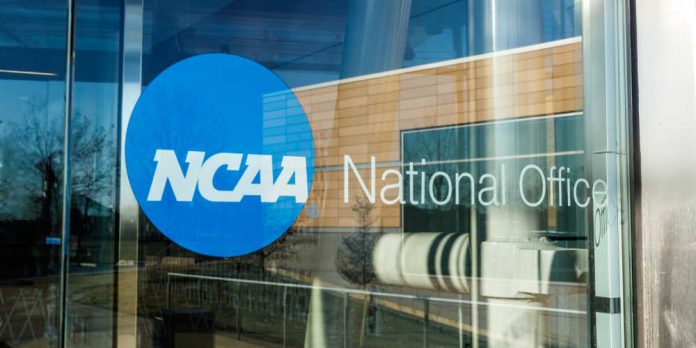The President of the NCAA Charlie Baker has told stakeholders that the organization could forge closer ties to the sports betting industry to diversify its revenue streams.
As reported by Forbes, Baker noted that the NCAA sees significant financial opportunities through sports betting links, which can help to top up its three current revenue streams – broadcast, commercial, and gameday revenues.
The NCAA chief told an audience at the Future of College Sports conference that, in order to catch up with rival sporting organizations, it would need to monetize those betting benefits.
He said: “That’s a major opportunity, right in front of us. We have a major opportunity to get into the sports betting space – anybody who has a phone is able to bet from any place they want, and two-thirds to almost three-quarters of all people between the ages of 18 and 22 are betting on sports.”
These comments were made just weeks after the NCAA published the findings of a survey conducted in April, which revealed how rife sports betting is on college campuses, with around 60% of students having engaged in the activity in the last year.
Moreover, 52.8% of respondents detailed that sportsbook ads have actively made them more likely to engage in sport betting activity, compared to just 19.6% who said it would make them less likely to.
Despite Casey Clark, SVP of the AGA, explaining to SBC Americas that “they (NCAA) take a pretty broad definition of sports betting, including a lot of casual betting activities, a lot of which are legal for 18 to 20-year-olds in the US,” it nevertheless shows that sports betting is already ingrained into campuses across the country.
Regardless of the statistics, and the subsequent concerns amongst the RG community, Baker seems intent on capitalizing on the growing interest in sports betting amongst the student population.
“The truth is, if there are lots of kids on campus betting on college sports and betting on the teams on their campus, this puts student-athletes in a very difficult position, Baker added. “(The NCAA needs to) create a program that we hope we’re going to get everybody to endorse around helping them develop the tools and techniques (athletes are) going to need to deal with this stuff.”
Baker’s comments also come as the NCAA and some of its teams are embroiled in a scandal regarding sports betting.
Several members of staff at the University of Cincinnati lost their jobs following a sports betting controversy after a player’s parent – Bert Neff– contacted staff before placing bets.
Coach Scott Googins, Assistant Baseball Coach Kyle Sprague, and Director of Operations Andy Nagel all left their roles following an investigation.
Meanwhile, Brad Bohannon was fired as the coach of the Alabama baseball team after contact with the same parent.
Over in Iowa, the state’s Racing and Gaming Commission has opened an investigation looking into suspicious activity related to the Iowa Hawkeyes baseball team after four players were suspended.
Subsequently, over 40 players in Iowa have been suspended for alleged breaches of sports betting rules, yet the NCAA seems to be heading for closer sports betting links.
Seemingly contradictory to Baker’s comments, sportsbooks are also winding down or terminating their relationships with college athletics departments, with just one such deal remaining.
Only SuperBook’s deal with Denver University remains after PointsBet canceled its deal with the University of Colorado and Caesars ended its deals with LSU and MSU.
Speaking to SBC Americas last week, Clark added that he doesn’t foresee any similar deals being struck, particularly after the AGA banned the in its updated responsible Marketing Code for Sports Wagering.
Baker did not elaborate on what closer ties and the monetization of sports betting would look like.














